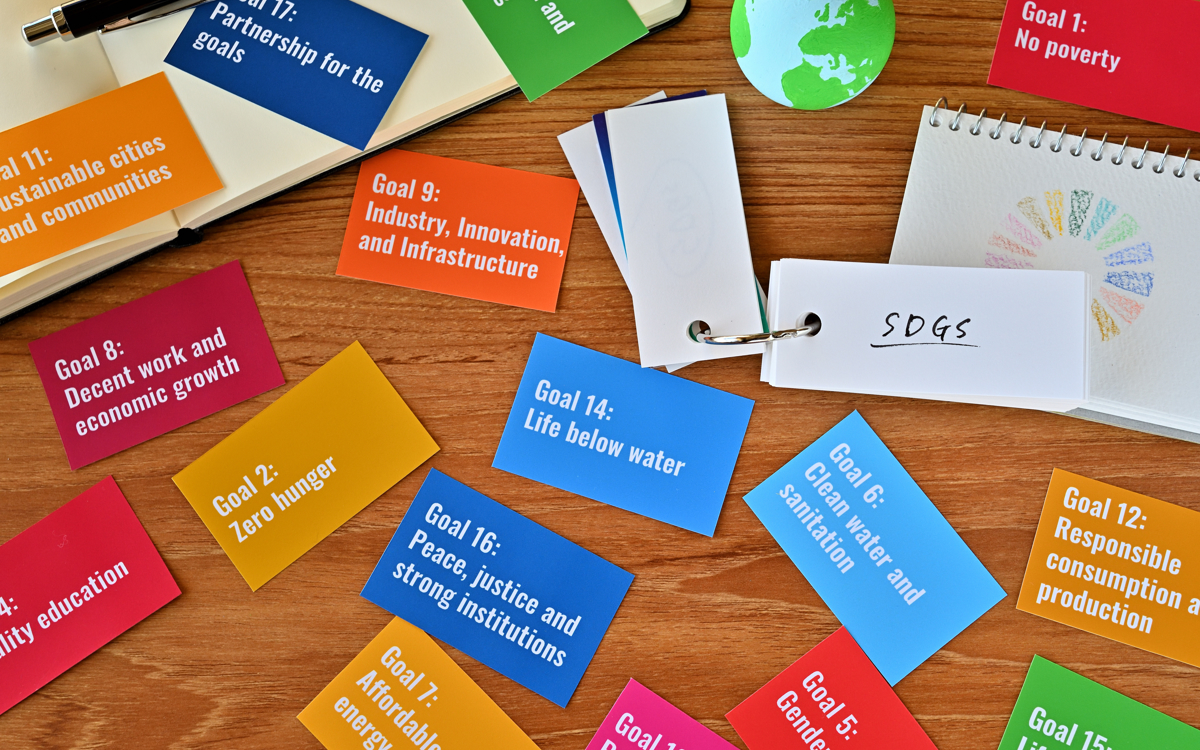
Earlier this year, Newcastle University organised an event exclusively for members of the ACU Higher Education and the SDGs Network to explore local contributions that universities are making to the SDGs. Network member Graham Long, Senior Lecturer at Newcastle University, summarises some of the key issues raised in the presentations and the discussions that followed.
By Graham Long with assistance from Louise Luxton from Newcastle University, UK
Universities are increasingly looking to define and articulate their contribution to the Sustainable Development Goals (SDGs). This is reflected in efforts to align university strategies and agendas - for research, teaching and learning, and wider operations – to the SDGs. There has also been a growth in review, reporting and ranking of universities’ responses to the SDGs with institutions conducting ‘Voluntary University Reviews’, initiatives such as the SDG Accord, and the Times Higher Impact rankings.
The SDGs identify global challenges, but also invite us to consider these challenges in different local contexts. On one common estimate, approximately 65% of SDG targets require action at a local scale, by local governments and other partners. Local and regional governments – and cities in particular – are responding to the SDGs in their planning, reporting and review processes, notably through a growing movement of cities undertaking ‘voluntary local reviews’ of the SDGs.
This event sought to take stock of how Universities are responding to the SDGs in their diverse local and regional contexts. The breakout discussions and five presenters gave diverse institutional perspectives on local engagement with the SDGs.
Local engagement with the SDGs
Joy Bhowmik from the University of Liberal Arts Bangladesh (ULAB) summarised how ULAB had embedded the SDGs in the curriculum and highlighted the importance of international and intersectoral partnerships in addressing research to Bangladesh’s SDG challenges.
Niharika Kaul from Participatory Research in Asia (PRIA) shared examples of how their projects were addressing the SDGs, stressing the importance of projects being community-based with local stakeholders, including vulnerable and marginalised groups, participating in the research.
Stressing the importance of involving youth, Vincent Lomotey from CK Tedam University of Applied Sciences, Ghana gave the example of their Future Leaders’ summit and highlighted the potential for university action around health, education and employment in response to the local and national context of Ghana.
Samatha Waugh from University of Sussex, UK discussed how the SDGs are integrated into their new university sustainability strategy. Samantha detailed, in particular, an emerging focus on outreach, such as via a staff volunteering scheme, and encouraging students to engage with the SDGs.
From the University of Canterbury, New Zealand Ian Wright spoke about the role of his university as an anchor institution with a deliberate policy of engaging with other civic actors around local challenges. He stressed the potential for harnessing a University’s research capacity, expertise and data in addressing local needs.
Common challenges and focus areas
The event breakout discussions illuminated some of the common challenges that universities are facing in this arena. Although SDG related research is ongoing across universities in various capacities, it is largely siloed and not accurately reflected in current metrics. A key challenge identified is the difficulty of engaging with others and bringing together SDG-focused work.
Currently, in many contexts, another barrier is a lack of awareness and interest in SDGs in senior management. The buy-in of senior management is a critical spur to coordinated university engagement with the SDGs. There was also a recognition that as sustainability becomes increasingly important to a university’s reputation and to attracting prospective students, management will increasingly value the development of a sustainability framework.
Although the THE rankings have been valuable as a driver of discussion and something to centre conversation around, however, there is a concern across universities that existing metrics are not fully reflective of the work being done.
Incorporating SDGs and sustainability into curricula was cited as a common focus, partly because this is a manageable practice and partly because of increasing student interest in these areas. Many identified mapping and measuring activities within the university as their current priority, with students increasingly involved in SDG related research projects, such as in mapping SDG activity across a university.
More information
- Are you directly engaging in the SDGs agenda within your institution? Join our Higher Education and the SDGs Network
